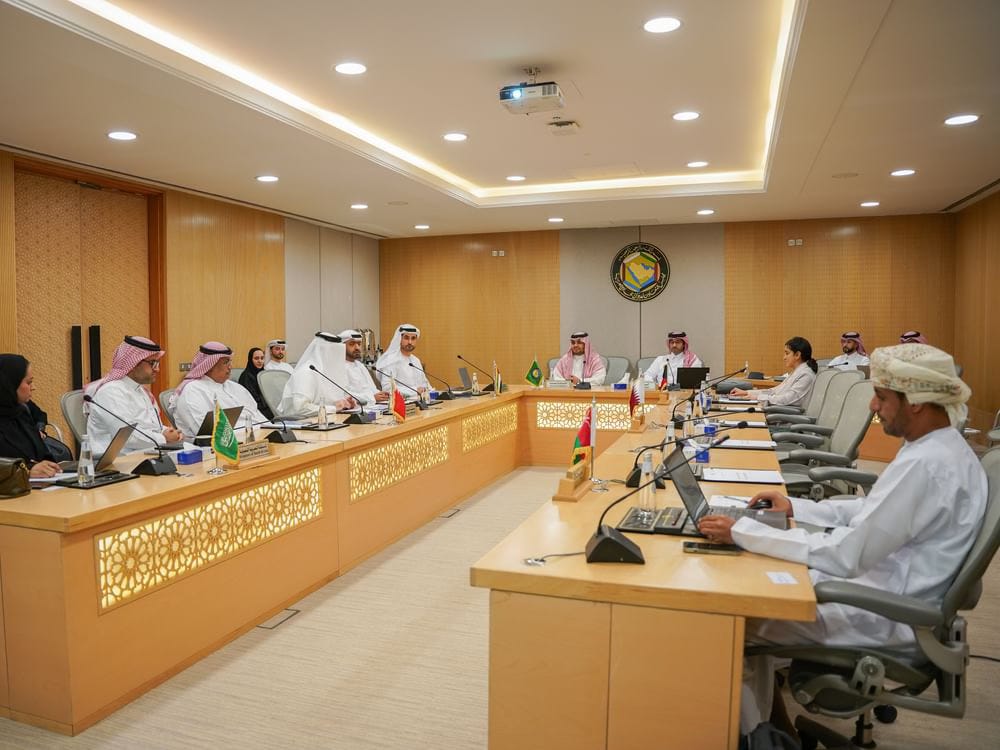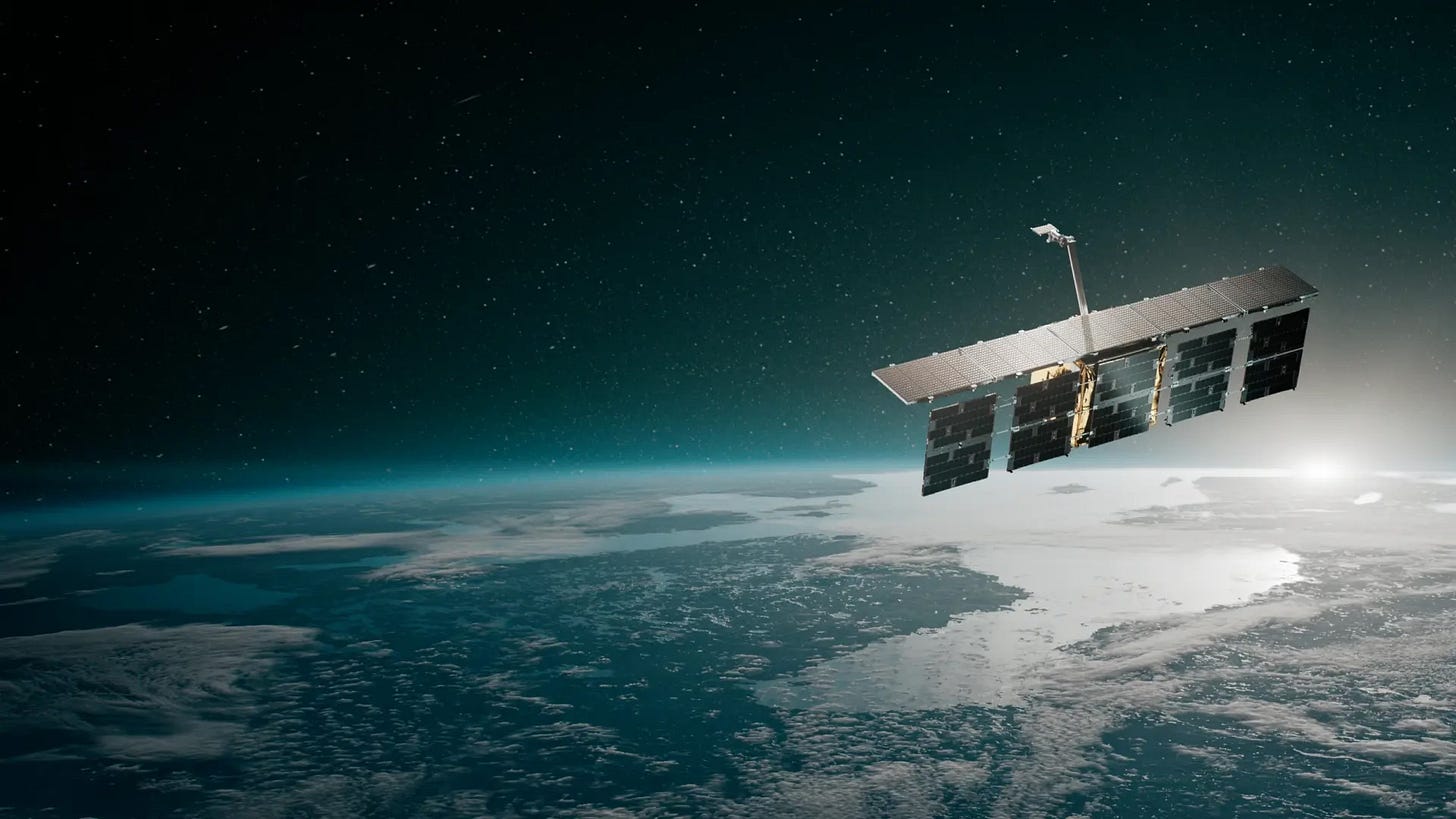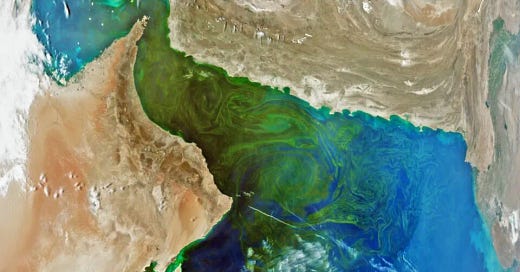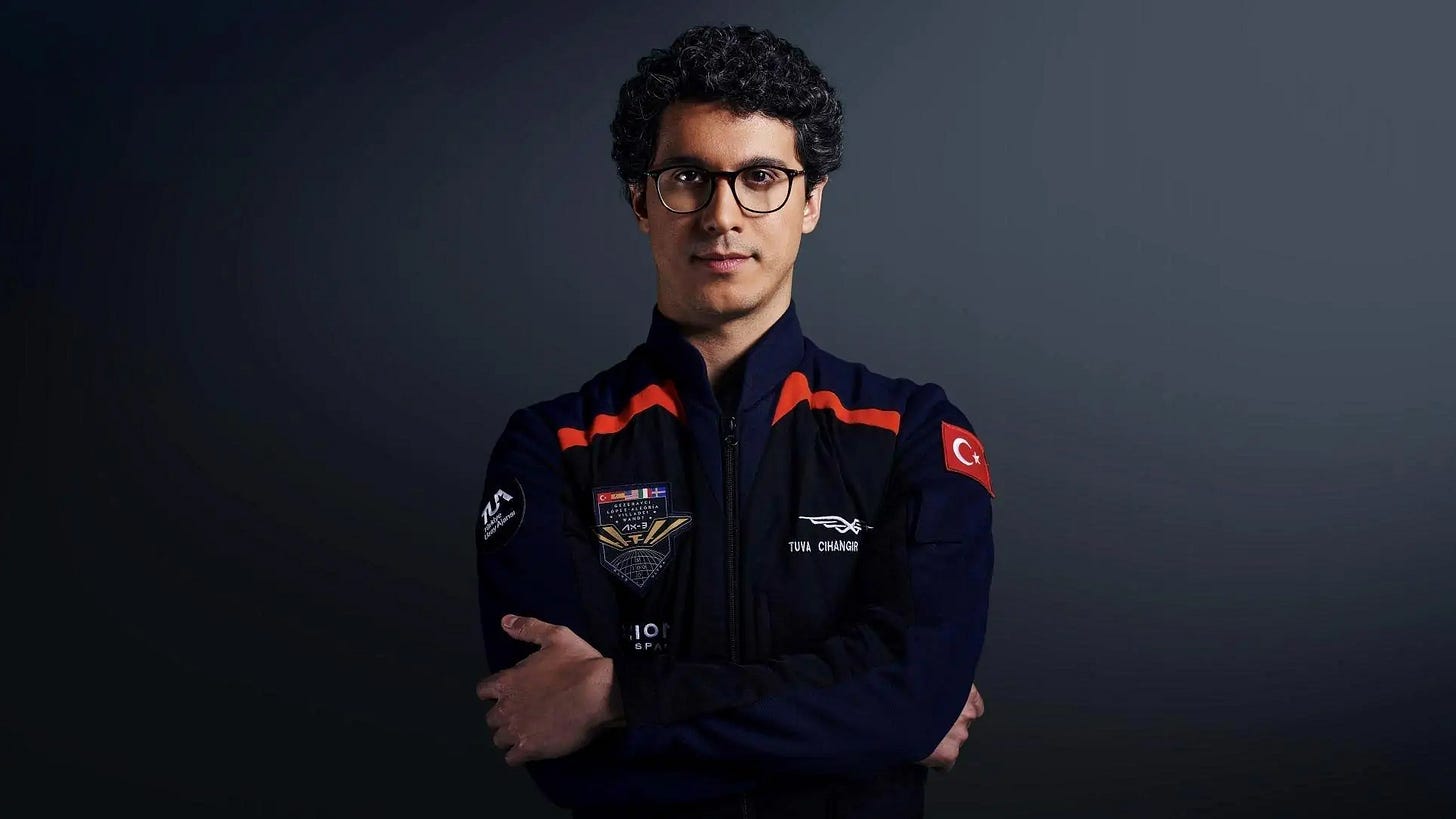Middle East Space Roundup: 6 to 12 May 2024
A summary of all the space news in the Greater Middle East over the past week, brought to you by AzurX
The following are the major space developments in the Greater Middle East region tracked by Middle East Space Monitor over the past week:
Israeli SATCOM Developments
Israel’s Spacecom and Eutelsat OneWeb Partner for Multi-Orbit SATCOM Services
Israel’s Spacecom and Eutelsat OneWeb have initiated an innovative joint trial to provide critical communication services tailored to emergency situations, marking a significant step in Spacecom's strategic transition towards delivering multi-orbit satellite telecommunications services. The trial combines Spacecom's AMOS satellites with Eutelsat OneWeb's low-Earth orbit (LEO) satellite constellation, aiming to expand and enhance the communication services provided to satellite communication customers. The integration of communication services over multiple orbits positions Spacecom at the forefront of technology, enabling the company to offer flexible and tailored solutions that meet the evolving needs of its customers while maintaining high-performance standards. The trial, conducted at Spacecom's site in Neve-Ilan and in coordination with the Israeli Ministry of Communications, will demonstrate the performance of Eutelsat OneWeb's satellite terminals in various scenarios, including providing backup services in emergencies and ensuring communication continuity for communities. Additionally, the trial will examine the performance of a combined communication system utilising Spacecom's AMOS satellites and Eutelsat OneWeb's LEO satellites in delivering services to the telecom and business sectors. The innovative service supports various options to ensure the highest level of service, allowing for end-to-end encryption and delivering personalised communication services tailored to customer needs. Spacecom's control and monitoring of the service provided in Israel will ensure a seamless integrated service across its GEO satellites and Eutelsat OneWeb's LEO satellites.
Israel’s Gilat Reports Strong 2024 First Quarter Financial Results
Israel’s Gilat Satellite Networks Ltd. reported strong financial results for the first quarter of 2024, with revenue of $76.1 million, representing a 29% increase compared to Q1 2023. The company's GAAP operating income declined to $5.4 million due to lower other income, higher stock-based compensation related to the Datapath acquisition, and amortisation of purchased intangibles. However, non-GAAP operating income grew by 25% to $6.6 million, and non-GAAP net income nearly doubled to $6.0 million. Gilat reiterated its guidance for 2024, expecting revenue between $305 and $325 million, GAAP operating income between $15 and $19 million, and Adjusted EBITDA between $40 and $44 million. CEO Adi Sfadia attributed the revenue growth to solid organic growth in both the Satellite Networks and Network Infrastructure and Services segments, as well as a full quarter contribution from the recently acquired Datapath. Gilat's strong financial position allows the company to explore potential inorganic growth opportunities to accelerate its growth trajectory. The company also announced several key recent developments, including the launch of SES's O3b mPOWER System via Gilat's SkyEdge IV Platform, multiple orders from defence organisations and service providers, and contract extensions with the U.S. Army and satellite operators.
Report Alleges Israel’s Gilat SATCOM Terminals Being Supplied to Russia
In a concerning revelation, a report has emerged alleging that Gilat SkyEdge satellite communications systems, manufactured in Ukraine by Jabil Circuit's Uzhhorod plant for the Israeli company Gilat Satellite Networks Ltd., were supplied to Russia in large quantities. Customs declarations accessed by journalists show that approximately 22,000 systems worth around $5 million were imported into Russia in 2023, with additional equipment worth $840,000 entering the country in 2022. Evidence suggests that these systems are being used by Russian forces at the front, with Gilat satellite communications being widely sold in Russia and marketed for their suitability in military operations. The Gilat systems, which work with Russian Yamal and Express satellites, offer advantages to Russian forces in terms of tracking and suppression compared to alternatives like Starlink. Gilat Satellite Networks has been assisting Russia in developing satellite communications for over two decades, partnering with major cellular operators and engaging in military and police communications. Despite the full-scale invasion of Ukraine, the supply of Gilat systems to Russia has not only continued but significantly increased, with goods being exported through Hungary, Israel, and Türkiye, and Ukraine being listed as the country of origin. Ironically, Gilat Satellite Networks also fulfills military orders for the United States, with its U.S. subsidiary receiving a $10 million order for portable satellite communications hubs in February 2024. This revelation raises serious concerns about the role of international companies in indirectly supporting Russian military activities in Ukraine.
Iran Space Developments
Iran Reiterates Ambition to be Regional Space Hub in the Next Decade
Iran's Minister of Information and Communications Technology, Eissa Zarepour, has reiterated the country's ambitious plan to become the space hub of the region within the next decade. According to Zarepour, Iran aims to achieve self-sufficiency in the space industry and focus on marketing its space services globally, particularly in light launchers and small satellites weighing under 100 kg, for which there is a growing international demand. The country is actively seeking to attract international partners and develop cooperation in the space sector by hosting exhibitions and events. Zarepour highlighted the progress made in the previous year, with six satellites launched and numerous others put into orbit, marking the most brilliant year in Iran's space development. Additionally, the construction of the country's largest space base has begun, with the first phase set to be implemented in the coming year. These developments underscore Iran's determination to be a key player in the regional space sector and contribute to the global market for small satellite technology.
Iran Castigates U.S. Space Policy at UN while Ignoring Russia’s ASAT Developments
Hassan Rahimi Majd, Iran's representative to the United Nations (UN), delivered a speech at the UN General Assembly on the exploration and use of outer space, reaffirming Iran's commitment to the peaceful use of outer space for the benefit of all countries. He expressed concern about the increasing threat of weaponisation of outer space and called for negotiations on a comprehensive and legally binding instrument to prevent an arms race in outer space. Rahimi Majd emphasised the importance of discussing space activities within the scope of international specialised bodies under the UN, such as the Conference on Disarmament (CD) and the Committee on the Peaceful Uses of Outer Space (COPUOS). He strongly condemned the instrumental and political exploitation of UN institutions and bodies, particularly the Security Council and stressed the need for multilateralism and consensus on diverse issues through relevant specialised institutions with the active participation of all member countries. Rahimi Majd criticised the United States for not accepting an amendment proposed by China and Russia to address gaps and shortcomings within a draft resolution, accusing the U.S. of impeding progress on preventing an arms race in outer space and viewing outer space as a potential battleground, as evidenced by the establishment of the Space Force and Space Command. He also called out certain Western countries, particularly the U.S., for adopting a biased and self-serving approach towards international treaties and conventions, which he claimed undermines the credibility of disarmament and non-proliferation efforts. Rahimi Majd’s speech did not mention Russia’s alleged nuclear antisatellite (ASAT) weapon development.
GCC Space Cooperation Workshop
Bahrain Participates in Gulf Cooperation Council Space Meeting
The National Space Science Authority (NSSA) of Bahrain participated in a workshop titled "Cooperation in the Field of Space," organised by the Gulf Cooperation Council (GCC) in Riyadh, Saudi Arabia. The Bahraini delegation, led by Dr. Mohammed Ibrahim Al Asiri, CEO of the NSSA, delivered a comprehensive presentation on the history of the Kingdom's space sector and the authority's journey, highlighting key achievements and significant projects. Dr. Al Asiri emphasised the workshop's pivotal role as the inaugural initiative by the GCC to understand the space sector's history, capabilities, achievements, and future plans across member states, with discussions focusing on fostering Gulf cooperation to achieve integration among member states. He commended the GCC for its coordination and organisation of the workshop, underscoring the importance of the workshop's recommendations in bolstering Gulf action to realise the aspirations of GCC countries. This workshop marks a significant step towards promoting regional cooperation and integration in the space sector among the Gulf states.

UAE Space Agency Participates in GCC Space Cooperation Workshop
A delegation from the UAE Space Agency recently participated in the Gulf Cooperation Council (GCC) space cooperation workshop held in Riyadh, Saudi Arabia, focusing on fostering collaboration and synergy among Gulf countries in the space sector. Led by Ibrahim Hamza Al Qasim, the Deputy Director-General of the UAE Space Agency, the delegation proposed various initiatives, including data sharing, educational workshops, and joint research endeavours, aimed at advancing scientific research and space exploration across the region. The workshop provided insights into each GCC country's space programmes and achievements, laying the groundwork for enhanced cooperation in scientific, technical, and research domains. Al Qasim emphasised the significance of cooperation in bolstering youth skills, economic growth, and achieving common regional goals in space science and technology. Discussions also revolved around space legislation, entrepreneurship support, and the role of startups in space economic zones, underscoring the commitment to sustainable development and economic diversification through regional collaboration in space endeavours. The workshop underscores the shared belief in the transformative potential of regional and international cooperation to drive progress in the national space sectors, foster innovation, and contribute to economic development.
UAE Space Developments
UAE Recognised for its Space Diplomacy at Washington, DC, Forum
At the Meridian Space Diplomacy Forum held in Washington DC, United States, the UAE Ambassador to the United States, Yousef Al Otaiba, was honoured with the inaugural Global Leadership Award for Space Diplomacy in recognition of the UAE's significant achievements and endeavours in the space sector. Alia Al Suwaidi, Deputy Chief of Mission, accepted the award on behalf of Al Otaiba, emphasising the hard work and dedication of the UAE Space Agency and the Mohammed bin Rashid Space Centre (MBRSC), as well as the importance of international partnerships, particularly with the U.S., in achieving milestones such as launching the first made-in-the-UAE satellite, sending two astronauts to the International Space Station, and becoming the fifth country to reach Mars. The UAE-U.S. relationship in space has grown significantly over the past decade, with collaborations on astronaut training and missions, the development of the airlock for NASA's Gateway lunar space station, and partnerships with U.S. research institutions supporting the Emirates Mars Mission 'Hope Probe' and the upcoming mission to the Asteroid Belt. Ambassador Stuart Holliday, Meridian International Center Chief Executive Officer, praised the UAE's remarkable achievements in the space sector, given the relative newness of its space programme. The forum brought together key players in the global space industry to explore collaborative strategies and innovative diplomatic approaches in space exploration, aiming to shape responsible behaviour in space.
UAE’s Yahsat Hosts South African Government, Discusses SATCOM Cooperation
A high-level delegation from South Africa, led by Deputy President Paul Mashatile and Minister of Communications and Digital Technologies Mondli Gungubele, visited Yahsat, the prominent satellite communication company based in the UAE, to explore potential collaborations aimed at enhancing South Africa's communications sector. The meeting brought together key stakeholders from both parties, including senior executives from Yahsat and representatives from Brainwave Projects SA, Yahsat's satellite broadband solutions provider in South Africa. Discussions focused on fostering cooperation in the satellite communications sector, leveraging the UAE's advanced satcom sector and intelligent data solutions services to bridge communication gaps between rural and urban areas in South Africa and ensure secure information flow across government agencies. Potential partnerships between South Africa and the UAE were also explored, including the development and launch of a South African communication satellite and interim measures to enhance the country's communication sector while the satellite project progresses. The South African delegation emphasised the need to address the skills gap required to operationalise the country's satellite communications outfit, highlighting efforts to upskill local engineers to ensure full operationalisation once the satellite is in orbit. This meeting underscores the growing importance of international collaboration in the satellite communications sector and the potential for advanced space technologies to drive socio-economic development and bridge the digital divide in emerging markets.
UAE’s MBRSC to Host Geo-Spatial Week Conference in April 2025
The UAE’s Mohammed Bin Rashid Space Centre (MBRSC) has announced that it will host the Geo-Spatial Week 2025 (GSW 2025) in collaboration with the International Society for Photogrammetry and Remote Sensing (ISPRS) in Dubai from 6-11 April 2025. This six-day event, themed "Photogrammetry and Remote Sensing for a Better Tomorrow," aims to gather the world's leading experts in photogrammetry, remote sensing, and spatial sciences to explore, collaborate, and inspire advancements in geospatial technologies. GSW 2025 will feature workshops, plenary sessions, oral presentations, and a scientific exhibition showcasing the latest state-of-the-art geospatial technologies from local and international companies. The event serves as a unique platform for international students, graduate students, scientists, and professionals to learn, share knowledge, and enhance their skills in applying geospatial technologies, fostering a collaborative environment that supports growth and advancement. Moreover, GSW 2025 aims to enhance communication among various workshop communities within the ISPRS and beyond, increasing the visibility and impact of ISPRS activities and offering an attractive opportunity for sustaining members to participate in ISPRS events.

CEO of Finland’s ICEYE Touts UAE SAR Satellite Agreement
Rafal Modrzewski, CEO and co-founder of ICEYE, has reiterated the company's dedication to increasing its investments in the UAE as part of its strategic expansion in the Middle East and North Africa (MENA) region. Speaking at the AIM Congress in Abu Dhabi, Modrzewski emphasised ICEYE's pivotal role in the emerging space economy, particularly since establishing its UAE office in 2022. Collaborating with Bayanat and Yahsat, ICEYE aims to bolster national capabilities for remote sensing and Earth observation, tapping into local and global market opportunities. Highlighting the UAE's substantial AED 3 billion National Space Fund for space sector development, Modrzewski emphasised ICEYE's flexibility in tailoring solutions to regional needs. The partnership's flagship project, involving the deployment of a constellation of seven satellites, signifies a significant advancement in regional space capabilities, promising real-time high-resolution imagery for enhanced geospatial insights. With substantial funding secured, ICEYE is poised to push AI-driven innovation across public and private sectors in the MENA region and beyond, contributing to the region's technological advancement and economic diversification away from oil and gas.
NASA Martian Analog Mission Commences with UAE Participant
The UAE’s Mohammed Bin Rashid Space Centre (MBRSC) has initiated the second phase of the UAE Analog Programme's second analog study, with Emirati crew member Shareef Al Romaithi entering NASA’s Johnson Space Center's Human Exploration Research Analog (HERA) habitat in Houston, Texas in the United States. Joined by primary crew members, the team will undergo a 45-day mission within the HERA facility, simulating space-like conditions to study adaptation to isolation and confinement. The mission involves scientific research, operational tasks, and simulated scenarios like a virtual reality walk on Mars's surface. Scheduled to conclude on 24 June 2024, the programme aims to prepare cadres for deep space exploration, positioning the UAE as a leader in space technology and advancing international collaboration in human spaceflight. This initiative is part of a broader four-phase analog study involving 18 human health studies to understand crew responses to conditions akin to those on future lunar and Martian missions, with scientific contributions from UAE academic institutions.
UAE’s Alpha MBM Investments Invests $25 Million in Hong Kong’s Aspace
Alpha MBM Investments, a UAE investment firm and the private investment office of Sheikh Mohammed Bin Maktoum Bin Juma Al-Maktoum, has invested US$25 million in Hong Kong’s Aspace International Holdings Limited at a valuation of US$500 million. This investment marks Alpha MBM Investments' entry as the founding shareholder and strategic partner of Aspace International Holdings Limited, aiming to propel the region's space capabilities forward and foster innovation. Aspace International Holdings Limited has secured 3 million square meters of land in KEZAD, Abu Dhabi, for the development of the Abu Dhabi Space Eco Park and Satellite City, envisioned to become the largest advanced manufacturing hub in the Middle East's space industry, housing 3,000 enterprises. The partnership between Sheikh Mohammed Bin Maktoum Bin Juma Al-Maktoum and Aspace International Holdings Limited demonstrates a shared commitment to driving progress in space technology which aligns with the UAE's forward-looking vision of establishing the region as a global leader in space exploration and satellite technology. The project has already attracted interest from more than 200 companies worldwide, and the UAE continues to invite global participation in building the largest industrial cluster park in the Middle East, with a focus on innovation, inclusiveness, financial support, and a stable international platform.
Other News
Egypt and Czech Republic Discuss Possible Space Cooperation
The Egyptian Space Agency (EgSA) recently hosted a delegation from the Czech Republic at its headquarters in Cairo, Egypt, to explore opportunities for strengthening cooperation in space exploration and technology exchange. The delegation, led by Ms. Jana Havlíková, Deputy Minister of Science, Research, and Innovation of the Czech Republic, also included Ivan Yukl, Ambassador of the Czech Republic, and Jiří Drahoš, the First Deputy Speaker of the Czech Republic. During the visit, Dr. Sherif Sedky, Chief Executive Officer of EgSA, highlighted the potential for collaboration between the two countries, elaborating on the agency's objectives, capabilities, and role within Africa. He emphasised the importance of leveraging joint projects to address shared needs in satellite applications and space entrepreneurship. The Czech delegation expressed optimism about future collaboration, citing the Czech Republic's strong network of institutions and companies engaged in space science technology. Ambassador Yukel suggested possibilities for joint efforts, including participation in the New Space Horizons Conference in September 2024. This visit marks a significant step towards fostering international cooperation in space science and technology between Egypt and the Czech Republic, with the potential to drive innovation and address common challenges in the field.
Türkiye’s Tuva Cihangir Atasever Prepares for June 2024 Virgin Galactic Mission
Türkiye's second astronaut, Tuva Cihangir Atasever, is set to embark on a suborbital research flight on 8 June 2024, from Virgin Galactic's Spaceport facilities in New Mexico, United States, as announced by Industry and Technology Minister Mehmet Fatih Kacır. During the approximately 1.5-hour flight, the VSS Unity suborbital vehicle will carry Atasever to an altitude of around 90 kilometers (55.92 miles), allowing for the conduct of seven experiments across various disciplines, including biological molecules, genetic analyses, metabolism changes, suppressive cells, insulin pens, and radiation analysis, during the three-minute free-fall phase in microgravity conditions. Kacır emphasised the significance of this mission in contributing to scientific research and yielding gains for researchers. Both Atasever and Türkiye's first astronaut, Alper Gezeravcı, have received extensive training from Axiom Space, SpaceX, and NASA, ensuring their preparedness for their respective missions. The suborbital research flight is part of Türkiye's National Space Programme, which aims to protect the country's rights and interests in space and establish Türkiye as a significant player in the global space competition. Kacır also highlighted Türkiye's advancements in satellite technology, with the upcoming launch of the domestic communication satellite TÜRKSAT-6A, which will position the country among the 11 states capable of developing and producing communication satellites.
Other News in Brief
Among the other regional space and satellite developments over the past week are:
The Oman-Brazil Investment Forum discusses potential space and satellite collaboration, among other topics;
Uganda considering space cooperation offer from Iran to enhance internet access.
Recommended Reading
SAR Satellites and their Role in the UAE’s Energy Transition
In Oil & Gas Magazine, ICEYE’s Jamil Kawar writes that the UAE is transitioning from fossil fuel production to becoming a leader in renewable energy, leveraging its geographical advantages for solar and tidal projects. With over 60% of total renewables capacity in the Gulf Cooperation Council states, the UAE is poised for further growth in renewable energy investments. Effective site selection and management are crucial for maximising energy production and cost efficiency in renewable projects. Space technology, particularly Synthetic Aperture Radar (SAR) satellites, offers invaluable insights for planning, construction, and monitoring of renewable energy sites. SAR satellites provide high-resolution data regardless of weather conditions, enabling detailed land use mapping, monitoring of solar panel infrastructure, and assessment of coastal changes for tidal projects. This technology aligns with the UAE's goal of achieving net-zero carbon emissions by 2050, facilitating rapid development of renewable energy infrastructure. With SAR data enhancing various aspects of renewable energy projects, the UAE's position in the global energy industry appears secure as the world transitions to renewable alternatives.
Middle East Non-State Actors and the Spectre of Space Terrorism
In the online publication Modern Diplomacy, Rosemary Kurian and Dr. Karamala Areesh Kumar write that the historical context of the Cold War initiated a space race between the United States and the Soviet Union, eventually leading to the militarisation of space, as seen through tests of anti-satellite weapons and ballistic missiles. Despite the Outer Space Treaty of 1967 aiming to prevent nuclear weapons and military bases in outer space, its effectiveness is questioned due to existing loopholes. Presently, outer space has become more accessible with reduced launch costs, allowing multinational corporations like Virgin Galactic and Rocket Lab to engage in space activities independently. However, the rise of non-state actors in space, exemplified by Elon Musk's SpaceX involvement in state projects, poses new challenges. Academic analysis highlights the potential for malicious non-state actors such as Hamas and Hezbollah to exploit space for nefarious purposes, akin to tactics used on land and sea. The economic significance of space in international relations underscores the growing dependence on state and non-state actors for space-related services. While conventional warfare in space has been deterred for now by the principle of deterrence, the threat posed by non-state actors remains concerning due to their potential indifference to escalation and lack of fear of adversaries. Furthermore, the proliferation of dual-use systems and advancements in space technology raise concerns about the potential for space-based terrorism, particularly through cyber-attacks targeting ground assets and Earth-based infrastructure. The limitations of the Outer Space Treaty to address evolving threats in space underscore the need for enhanced international cooperation and regulation to ensure the peaceful and secure use of outer space.
Be sure to catch up with space activities in the region in the next edition of Middle East Space Monitor’s space roundup!






